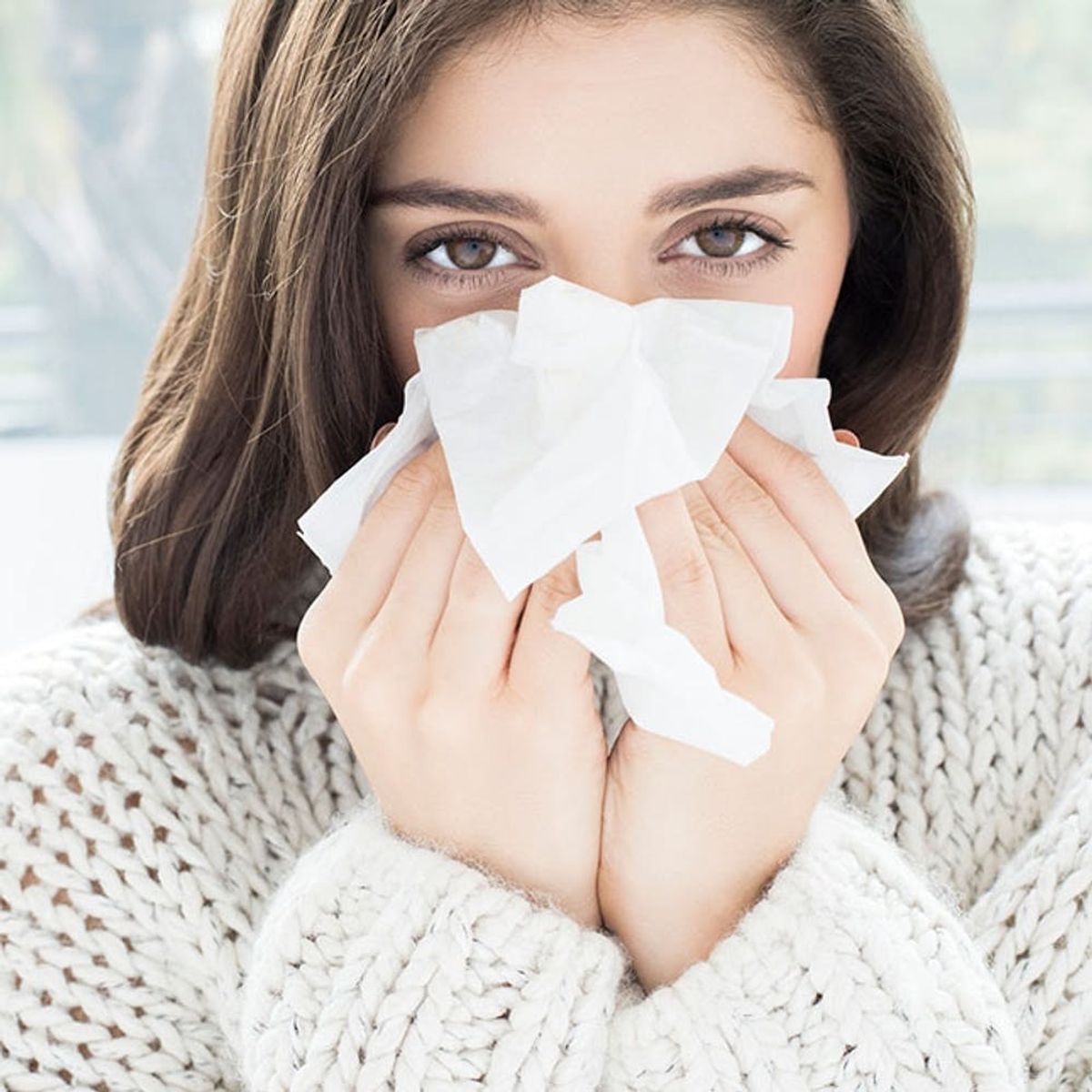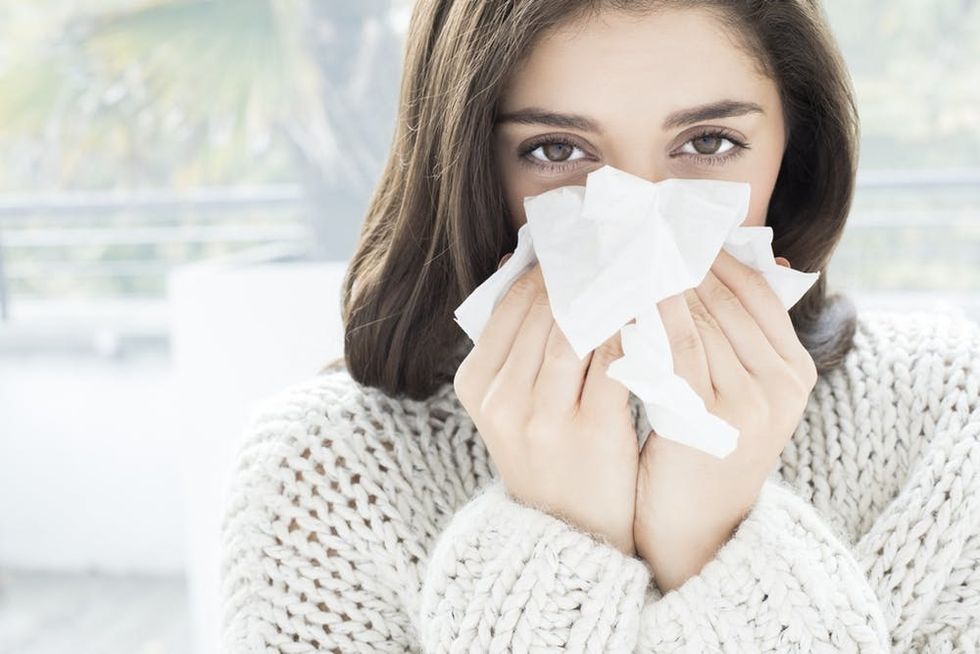5 Ways to Stay Healthy This Fall

If you’re like most people, you’re psyched to embrace everything the fall has to bring. You have sweaters to buy and PSLs to drink, football parties to host, and pumpkins to carve. For adults, it might not be back to school season, but it can still feel like an exciting time for fresh starts and positive vibes.
It’s not all cozy autumn flavors and snuggly outfits, though. Along with fall comes a slew of seasonal-specific health issues and concerns. Here’s what to look out for, as well as expert advice on how to stay healthy.

1. Iffy Indoor Air Quality: Spring is often considered the trickiest season for allergy sufferers, but the less-than-optimal air quality of many indoor spaces means that fall can be just as challenging for your nose, ears, eyes, and throat. “Cold weather pushes people indoors for extended periods of time, with greater use of fireplaces, gas heaters, and other fuel-burning appliances, which can increase the levels of indoor air contaminants like carbon monoxide and wood smoke,” the experts at air quality engineering company Molekule note. You can improve the air quality in your home during the fall months by staying on top of dust buildup on your floors, using a dehumidifier, cracking windows, using exhaust fans, and avoiding synthetic fragrances in the cleaning supplies you buy.
2. Seasonal Affective Disorder (SAD): Triggered by changes in the seasons, SAD is a type of depression that tends to affect more women than men, per doctor, author, stress management expert, and Nutritional Magnesium Association medical director Carolyn Dean. The disorder can make you feel moody and anxious, make it difficult to get up in the morning, negatively impact your ability to concentrate, and cause cravings for less-than-healthy foods. Unfortunately, most of us get less vitamin D when the weather turns colder, which is responsible for changes in hormone levels that can cause SAD. Vitamin D and magnesium supplements can help re-balance those hormones.
3. Colds: With people spending more time inside as temperatures drop — especially with the windows closed — cold germs are prone to spreading more furiously than they did in the spring and summer. Margot White, health educator and founder of healthy beauty and wellness boutique The Choosy Chick, advises regular hand washing and a good hand sanitizer to stop those germs in their tracks. Hand sanitizers produced without harsh chemicals can also help guard against dry skin, an issue that also flares up in the drier fall climate.
4. Itchy Skin: A lack of vitamin D absorption can also show in your skin, according to dermatologist and RealSelf contributor Dr. Joel Schlessinger. Combined with reduced moisture in the air, this can result in chronically dry, itchy skin. Fight this discomfort by using a humidifier, taking lukewarm showers, avoiding rough fabrics, and using cream or liquid foundations, rather than powder. Taking a vitamin D supplement can help as well.
5. The Flu: You might feel like you can put off flu precautions until fall turns to winter, but you’d be mistaken. According to Dr. Tony Yuan, associate medical director at Doctor on Demand, the flu can start spreading much sooner than expected, even as early as October. Getting a flu shot now is a great way to get ahead of the illness ASAP. “My best advice to prepare for the flu season is just being aware,” Yuan tells us. “This means… being aware of your surroundings and conscious of areas that pose a high risk for infection.” Don’t be afraid to politely decline a hug or handshake from someone who’s recently had the flu. You can owe them one later!
What health issues are you most concerned about with the new season? Tweet us @BritandCo!
(Photo via Getty)



















